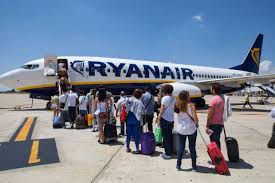As Australia’s economy continues to recover from COVID-19 lockdowns and border restrictions, a Sydney restaurant is addressing chronic worker shortages with a Chinese-made, multilingual hospitality robot.
The robot waiter is trained to understand the table layout and to deliver meals from the kitchen. It is also multilingual, with the ability to speak in both English and Mandarin. PuduTech, a Chinese company, created the ‘BellaBot’.
Each machine costs around $17,000 to build. They may be rented for $34 per day per gadget, which is the equivalent of two hours’ pay for restaurant workers. The gadgets are already in use in other Australian eateries, and imports appear to be unaffected by current trade tensions between the two nations.
Liarne Schai, co-owner of Sydney’s Matterhorn Restaurant, is overjoyed with her new mechanical employee.
“I adore the robot; she makes my life so much simpler.” It’s similar to a four-tiered tower. It can transport eight of our supper plates at once. She is geo-located on the floor (customer names, location of tables, etc.) “The robot knows where every one of our tables is,” Schai explained.
International students have long been the backbone of Australia’s hospitality profession. They have been barred from entering, however, because Australia closed its borders to most foreign nationals in March 2020 to contain the spread of the corona virus. Labour shortages are hurting a wide range of businesses in Australia, from construction to information technology.
Liarne Schai claims she has been attempting to hire people for months without luck.
“It is the most pressing issue we face right now.” We’ve been advertising for cooks, waiters, and kitchen helpers for six months and have had no takers. We are giving above-award rates, incentives, and whatever else you can think of to recruit acceptable workers, yet I am not even getting inappropriate or unskilled staff. “I’m just not getting anyone.”
Labour shortages are expected to alleviate after Australia reopens its borders to foreign citizens, but many openings are expected to stay unfilled, according to analysts.

















More Stories
Fintech Revolutionizes Travel: From Seamless Payments to AI-Driven Personalization
Hyatt House Noida Sector 140A to Launch New Extended Stay Experience
Mandarin Oriental Exceptional Homes Adds Historic Castello di Procopio in Umbria to Luxury Portfolio